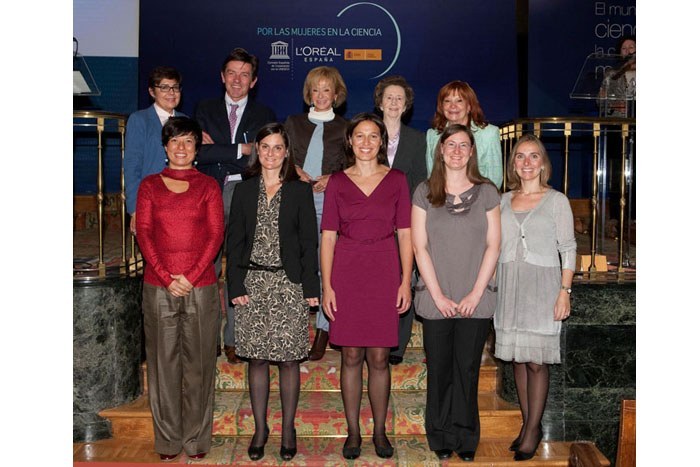Dr. Cristina Canal has been awarded with a L’ORÉAL-UNESCO 2011 Scientific Research Grant
Jun 28, 2016
Dr . Cristina Canal, member of the Biomaterials, Biomechanics and Tissue Engineering research group, one of the five young Spanish scientifics awarded at the L'Oréal -UNESCO for Women in Science scholarship program.
Dr . Cristina Canal, member of the Biomaterials, Biomechanics and Tissue Engineering research group, was one of the five young Spanish scientifics awarded at the L'Oréal -UNESCO for Women in Science scholarship program.
Cristina Canal, Ramón y Cajal Fellow at the UPC, has received the grant as a reward for his outstanding research in the field of materials science. Dr. Canal designes textile based biomaterials with drug delivery properties that could be applied in various diseases and could be used for biomedical applications. They are fibers or fabric, with modified surfaces at a nanometer level using low-temperature plasma, which can release drugs locally in a controlled manner and be reabsorbed by the body. This would be useful for soft tissue implants, such as mesh for hernia, or hard tissues, such as bones,as a reinforcement of calcium phosphate cements. These fibers, with properties for the controlled release of drugs, would contribute to avoid intravenous drug administration or successive doses of the drug on patients.
The L'Oréal-UNESCO For Women in Science scholarship program was created in 1998 as the first interncional awards dedicated to women scientists around the world, with the aim to promote the recognition of the role of women and increase the number of femenine scientific careers worldwide, by rewarding the work of eminent scientists and promoting scientific careers among young women. The scholarships, endowed with 15.000 euros each, are designed to develop research projects in this field. The selection of more than 100 candidates was carried by a rating agency of the Ministry of Science and Innovation and an internation scientific jury chose the winners.
62 winners have been recognized for their careers and 150 fellowships have received international support to pursue their scientific vocations to date. Two winners of the 2008 edition were awarded the Nobel prize in 2009: Elizabeth Blackburn won the Nobel Prize in Medicine for her breakthroughs in the fight against cancer and aging, and Ada Yonath won the Chemist Nobel Prize, by her breakthrough in the scientific understanding of the structure and function of cells.

Share: